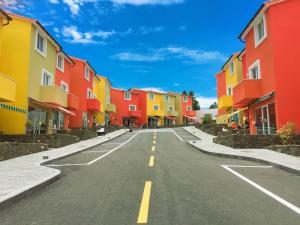 Those involved in providing reserve studies (engineers and accounting managers) perform a valuable function. They can tell you how much to put aside today for tomorrow’s capital expenditures, as they have it down to a science.
Those involved in providing reserve studies (engineers and accounting managers) perform a valuable function. They can tell you how much to put aside today for tomorrow’s capital expenditures, as they have it down to a science.There is also an art to reserve studies that is rarely discussed. There are some intangibles or perceptions about a condominium complex that aren’t as easy to measure, but can be extremely important in the sales and success of the organization. Is it just as important for the board or property manager to consider these less predictable factors when budgeting for the future?
Here are 10 questions you may not have thought to ask your reserve study provider to consider that may just make your association a better place in which to live.
What is the affect of curb appeal on unit sales?
We recently encountered a property that had a putting green as one of their amenities, but nobody used it! Why pay to maintain something that no one uses? Either save the money or use it for other things that the community does want. Consider surveying residents.
Should we replace elements in kind or upgrade?
This is a very important question, and can only be answered in an enhanced reserve study. Generally speaking, when budgeting for repair or replacement, the engineer will assume replacement in kind. This means that materials and equipment will be no better than what is there now. Often, more advanced materials and equipment are the only ones available, but there are choices. Is there a siding with better appearance andendurance? Is there higher efficiency equipment available? Tell your reserve study provider that you would like them to consider upgrades at the time of replacement.
How responsive are we to modern trends?
Stores devoted to pets have increased. More and more bike paths and bike-to-work initiatives have increased. wi-fi is now a commodity and people expect it. So, has your association discussed these and other trends, and are you responding to them with amenities such as dog runs, bike racks and paths, and Wi-Fi in the clubhouse? With planning, these are items that can be included in the reserve study.
What improvements would we like to consider?
Are entrance monuments and signage dated? Could we really use a new or additional pool or spa? Would additional landscaping add not only to curb appeal but also to our enjoyment of the association?
What can be deferred and what cannot?
This is a very important question for any reserve study provider. There are many tables that predict how long a component is supposed to last. However, most of the time these estimates are wrong, as they are only averages. An inspection of the current physical condition ensures that the reality of the situation is being considered and not just an average from a table.
Are there regulations that we will need to comply with?
From time to time, regulations impact requirements for the association. One of the more significant in recent years has been accessibility. Another is the Virginia Graeme Baker Pool & Spa Safety Act which requires anti-entrapment drain covers and other safety devices be applied as needed to public pools.
Borrow, assess, or charge?
In earlier times, the only way to handle a shortfall of funds was with a special assessment (we all know how popular that is). Most associations try to avoid that if at all possible, and in fact, some states ban it. More recently, it has been possible for associations to borrow money, which allows them to make loan payments similar to the way payments are made to the reserve. We have also seen cases where the association has developed fee schedules for services to generate additional funds. These may be for the use of existing facilities or the actual construction of new facilities. Loans and other income can be modeled in the reserve analysis.
A reserve study can be a static pro forma projection, or it can be a dynamic planning tool for maintaining your association the way you really think it should be. It just takes asking the right questions (and finding the reserve study provider who understands and can answer them) to make it a bigger picture for your condominium association.
